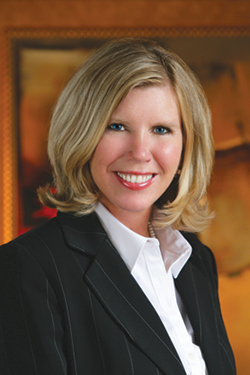Planning and Conducting the Perfect Interview

Are you fortunate to be a part of a growing organization that is hiring once again? If it has been awhile since you interviewed candidates for position openings, I have written some tips for you to incorporate into your interviewing process. The following are helpful approaches to planning and strategies for questioning that can reveal the “real” candidate.
Unplanned interviews are generally a waste of time. They encourage judgments based on whether you had a pleasant chat rather than whether the candidate can do the job. Planning for the interview should include these key steps:
1. Know what you want in a candidate before you interview. Review the job specifications and requirements that you’ve prepared.
2. Know the job and its responsibilities. Review the job description.
3. Review the candidate’s resume prior to the interview. Make note of anything that stands out, needs clarification or may be a “red flag.”
4. Plan a set of standard questions for all candidates. A series of general questions will help you determine whether applicants can meet your requirements. The inquiries should concern the candidate’s skills, abilities and past work performances that are related to the position you’re filling. Plan to ask each candidate all of your basic questions. This consistent approach is important for three reasons:
- It is fair and legal. If you ask certain questions only of specific candidates, you may be illegally discriminating.
- It allows you to compare candidates. If you converse about technical aspects of the job with one candidate and future trends with another, how will you compare the two?
- It helps you remember all questions. It is all too easy to forget important questions, especially when you’re interviewing several candidates.
5. Plan questions for individual candidates. In addition to the questions that you ask all candidates, prepare special questions for each individual candidate. These special questions usually arise from review of the resume and application or from a phone call. Use the questions to help clarify particular aspects of each candidate’s background.
6. Crafting the interview. Careful questioning and listening are at the heart of any interview. As an interviewer, mastering how to ask effective questions, as well as learning how to listen, will elicit a candidate’s meaningful answers. Here’s how to frame productive interview questions:
- Ask open-ended questions. Rather than questions that can be answered with a simple yes or no, ask the question so the candidate must describe, explain, clarify, etc.
- Avoid telegraphing the answer. For example, “Do you like working under pressure?” Answer: “Oh, yes, I love working under tight deadlines.” You’ve “telegraphed” the answer the candidate thinks you want to hear. Ask instead, “In what type of environment do you prefer to work?”
- Probe for additional details. If you ask the question, “Tell me about an important project in your previous job,” determine the candidate’s true role in the project. Listen for clues to the real scope of duties, the time involved in the project and the results. The responses may reveal a more accurate picture of the person’s true scope of involvement.
- Use reflecting to get more information. For example, if the answer is, “I managed big projects,” reflect the answer back: “You say you managed big projects?” It’s interesting how much information will often come forth.
- Present a scenario. Describe a typical situation that might occur in your organization and ask what the candidate might do. Scenario questions can be very effective, but don’t be locked into expecting a specific answer. After all, the candidate can’t know all of the particulars of your operations. Instead, listen for the logic of their ideas.
In addition to asking effective interview questions, it’s important for the interviewer to look and act professionally, to treat all candidates fairly and to be courteous and respectful. The interviewer is the face of the organization; if the candidate is not hired, how the candidate was treated during the interview is how they will judge—and advertise—your organization. iBi

